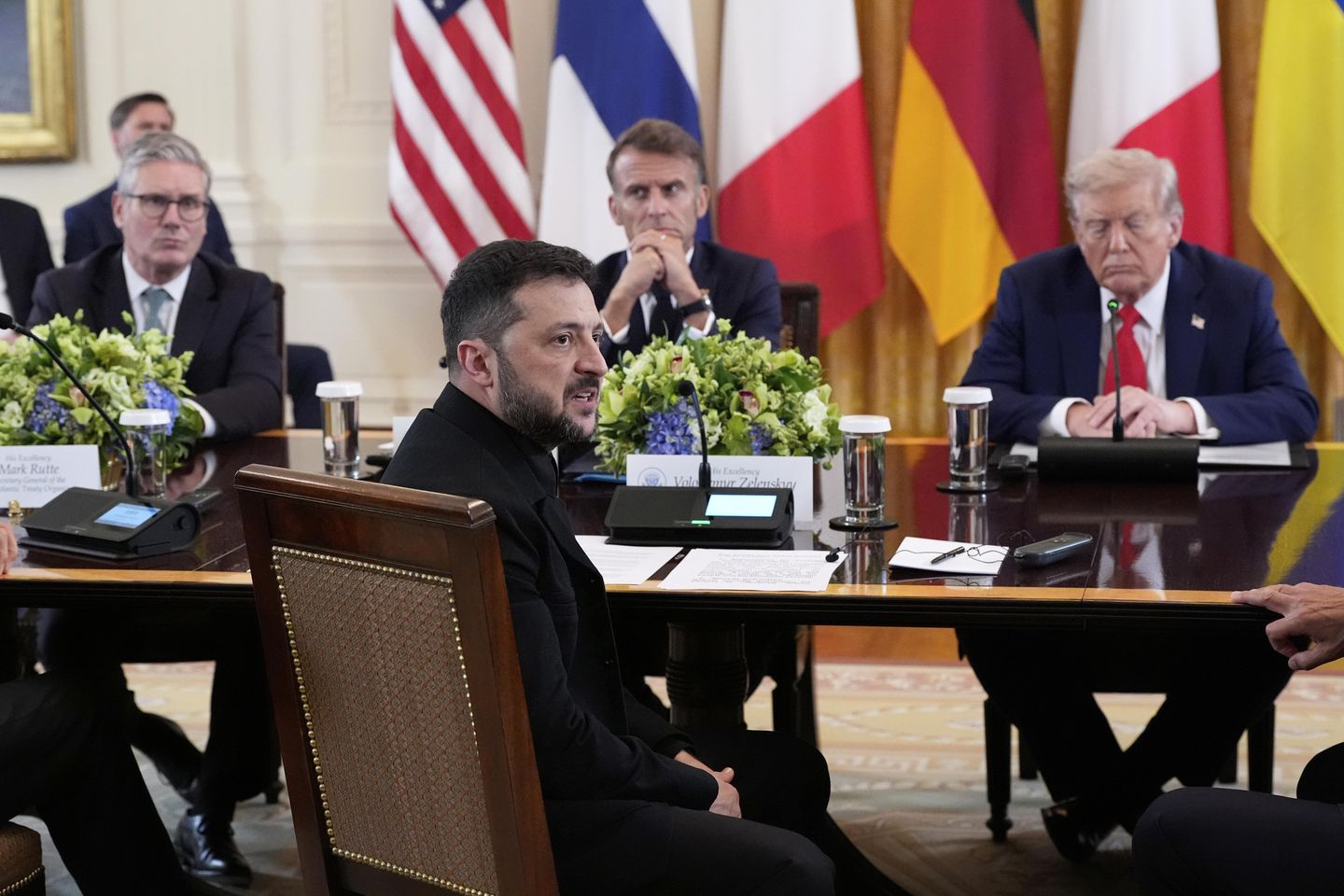
Don’t miss the full story from our staff writers, whose reportage is the basis of this article.
President Trump made a definitive commitment Tuesday that no U.S. troops will be deployed to Ukraine as part of any potential peace agreement between Russia and Ukraine. However, he indicated that other military options, particularly air power, remain on the table to prevent future Russian invasions.
In a Fox News interview, the president provided firm assurances about avoiding “American boots on the ground” to defend Ukraine’s border with Russia, even beyond his presidency. He emphasized that while European nations are willing to deploy ground forces, the U.S. would support them through air operations and other assistance.
The president also declared that Ukraine’s aspirations to join NATO and reclaim Crimea are “impossible,” offering the first concrete glimpse of what America’s post-war role in Ukraine might look like.
Questions continue surrounding the proposed meeting between Ukrainian President Volodymyr Zelenskyy and Russian President Vladimir Putin that Mr. Trump has been promoting. While White House press secretary Karoline Leavitt claimed Mr. Putin promised Mr. Trump that talks with Mr. Zelenskyy would occur within weeks, Moscow responded more cautiously. Russian Foreign Minister Sergey Lavrov stated that while Russia doesn’t reject talks, any summit would need careful preparation through expert-level discussions before advancing to higher stages.
The path to peace remains uncertain following Mr. Trump’s Monday meeting with President Zelenskyy and seven European leaders at the White House, which produced undefined security guarantee plans and optimistic bilateral talk proposals. Meanwhile, Russian forces continued their offensive with overnight drone and missile strikes in eastern Ukraine.
Former U.S. Ambassador to Ukraine John Herbst suggested the only realistic path to ending the war requires the West to clearly signal to Mr. Putin that he won’t gain additional Ukrainian territory and that continued aggression will severely damage Russia’s economy.
Security arrangements remain vague, with Mr. Trump and European leaders considering an agreement similar to NATO’s Article 5, which treats attacks on one member as attacks on all. However, Russia has consistently opposed NATO involvement in Ukraine and demands blocking Ukraine’s NATO membership as a key condition for ending the war.
Experts note that the U.S. could contribute to Ukraine’s security without ground troops through logistical support, weapons provision, intelligence sharing, and serving as a “backstop” with air and naval support for European forces. Japan’s Prime Minister Shigeru Ishiba confirmed his country’s participation in Ukraine’s security guarantees but provided no specific details.
Despite optimistic statements from the White House about Russian willingness to negotiate, Moscow’s cautious response follows familiar patterns of stalling and delaying meaningful talks.
This article is written with the assistance of generative artificial intelligence based solely on Washington Times original reporting and wire services. For more information, please read our AI policy or contact Ann Wog, Managing Editor for Digital, at awog@washingtontimes.com
The Washington Times AI Ethics Newsroom Committee can be reached at aispotlight@washingtontimes.com.















